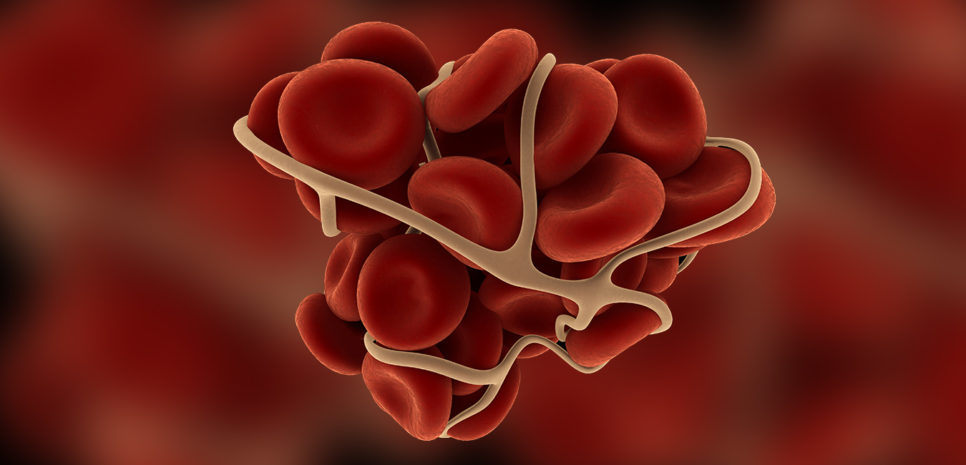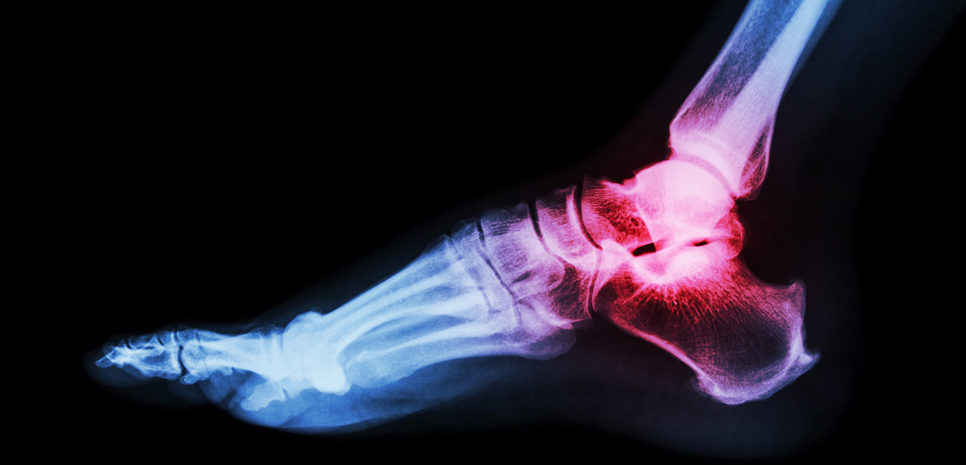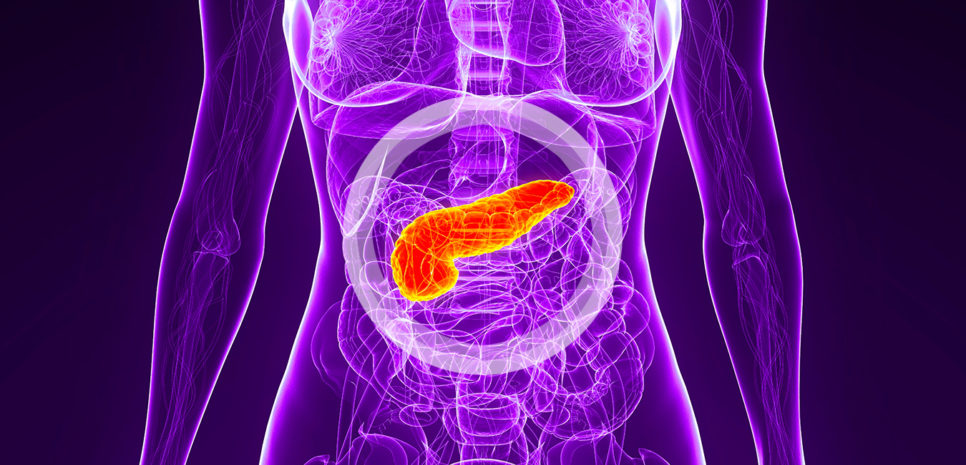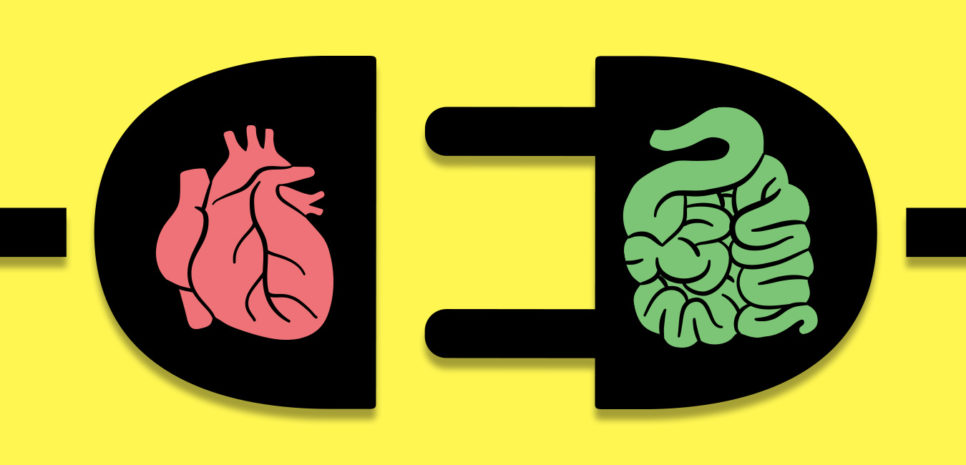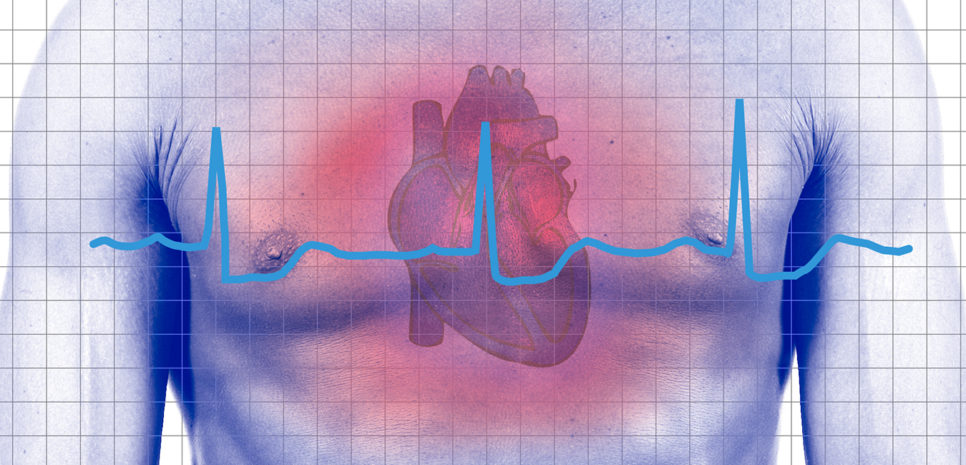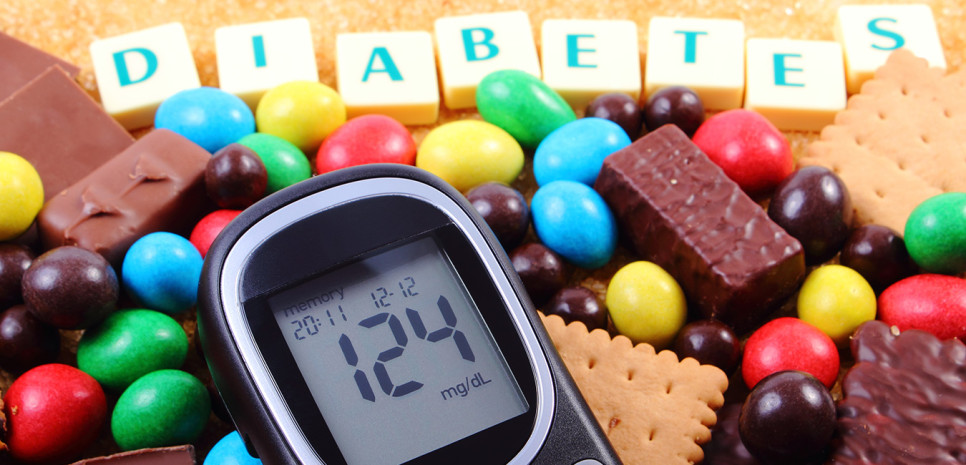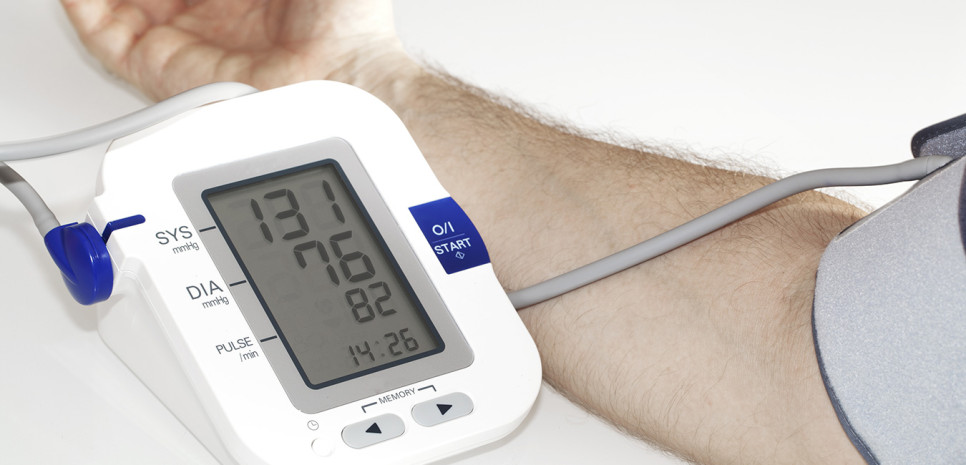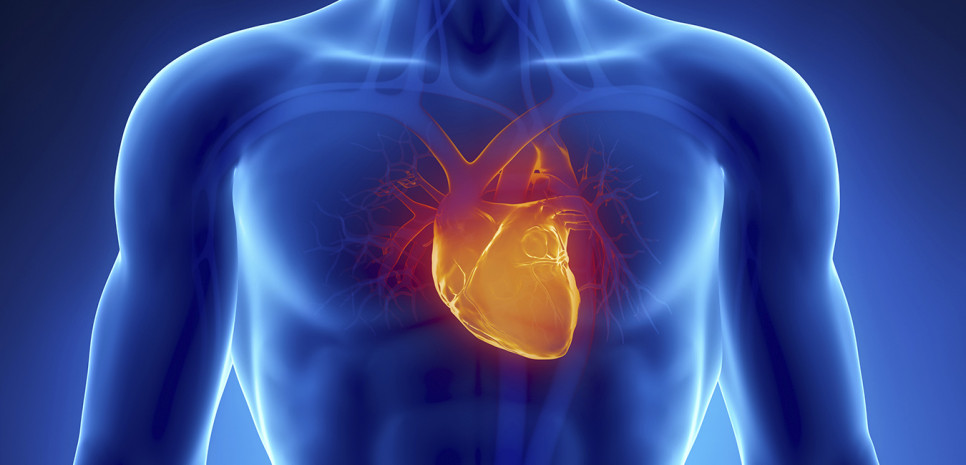The Surprising Heart Risks of High-Risk Pregnancies Heart disease is usually the last thing on a woman’s mind during pregnancy. But if her pregnancy is high risk, her future heart health may be on the line, accumulating research suggests. Recent studies show that women with high-risk pregnancies or complications, such as gestational diabetes and preeclampsia—a hypertensive condition related to pregnancy—have …
Lutein and Your Heart
A New Anti-Inflammatory Nutrient Lutein, a nutrient that’s related to beta-carotene and vitamin A, is often thought of as the vision vitamin. It’s used as a supplement to prevent eye-related conditions including macular degeneration, cataracts, and retinitis pigmentosa. But new research from Linköping University in Sweden suggests that there’s a vital new role for this vitamin known as a carotenoid, …
Sugar and the Heart: The Hidden Heart Harm in Your Diet
Sugar plays a well-known role in the development of obesity and diabetes. But research is beginning to show that it’s also murder on the heart. Over the 15 years of a Harvard School of Public Health study, those who got 17 percent to 21 percent of their calories from added sugar were 38 percent more likely to die from cardiovascular …
Choline, TMAO and Heart Health
Powerful new evidence from the Cleveland Clinic confirms a link between choline, a nutrient naturally found in foods like red meat, egg yolks and dairy products, and the risk of dangerous blood clotting. Choline interacts with gut bacteria to make the blood more prone to clotting by helping to produce a compound called, trimethylene N-oxide (TMAO). Elevated blood levels of …
NSAIDs and Cardiovascular Risk
The Hidden Heart Risk in Your Medicine Cabinet When nonsteroidal anti-inflammatory medications such as ibuprofen (Motrin, Advil) and naproxen sodium (Aleve) first hit the market, they were heralded as an attractive alternative to aspirin for tackling aches and pains, as they were thought to be gentler on the digestive tract. But in recent years, these medications, which are used for …
Caffeine, the Heart, and Inflammation
Caffeine has upsides and downsides for your health. But new research suggests your morning mug of joe could be a net positive when it comes to your cardiovascular risk. Researchers from Stanford University in California reporting in the journal Nature Medicine found that the more caffeine older people consumed, the more protected they were against chronic inflammation. In the process the scientists …
Omega-3 Fatty Acids: An Essential Heart Helper
Heart disease is the leading cause of death for both men and women in the United States, killing about a million people every year. Luckily it’s also one of the most preventable health problems Americans face. This American Heart Month, research is highlighting a simple way to improve your risk profile—consuming a healthy dose of omega-3 fatty acids. Derived from …
Gout: A New Heart Disease Risk Factor?
For the 8 million Americans who suffer from gout, sudden and severe attacks of pain in the joints aren’t the only things to worry about. A new study in the Annals of Rheumatic Diseases shows that the majority of people presenting with this common form of arthritis are at a very high risk for cardiovascular disease and prevention tactics should …
Air Pollution and Heart Disease
Air Pollution’s Surprising Heart Risks and What You Can Do to Lower Them The health threats of air pollution have been getting a lot of attention lately, and the news is both surprising and worrisome. A rash of new studies suggests that breathing in bad air isn’t just associated with respiratory ills like asthma or emphysema, but also with several …
Diabetes Drugs that Lower Heart Risks
Of all the complications of diabetes, including blindness, neuropathy (i.e., nerve pain), amputations, and kidney failure, the most dangerous—heart disease—is often paid the least attention. Yet people with diabetes are more than twice as likely to develop heart problems than those without diabetes, and the majority of people with type 2 diabetes will eventually die from cardiovascular ills such as …
6 Essential Heart Healthy Habits for the New Year
The start of a new year is a good time to reflect on past behaviors and identify where you need to improve. One of the best ways to promote your overall well-being is to nurture your heart’s health. Here are six key measures to ensure you’re doing right by yours in the coming year: 1. Know your numbers Your cholesterol, …
Diabetes and Heart Disease: A Deadly Connection
Diabetes, which affects the body’s use of insulin, has consequences for every system in the body — perhaps none more so than the heart. About 30 million Americans — more than 9 percent of the population — have diabetes, and the rates are on the rise. By 2050, one in three Americans is expected to have diabetes. Over time, the …
Dental Hygiene and Your Heart
Healthy Teeth and Gums—More Important Than Ever for Your Heart Gum disease, when bacteria-laden plaque accumulates around the teeth, has long been linked to poorer health—particularly heart health. Inflammation is believed to be behind the connection. Now it looks as though another common dental infection may be just as harmful. Called apical periodontitis, the condition results in inflammatory lesions that …
The Flu Shot and Your Heart
Fall is the time for colorful foliage, cooler temperatures—and the beginning of cold and flu season. No mere nuisance, flu costs the U.S. more than $10 billion and takes about 3,600 lives each year. Vaccination is a powerful weapon against the seasonal illness, which poses particular health risks to the very young and the elderly. But flu shots also have …
Stress, the Heart, and Inflammation
Racing through traffic. Meeting a deadline. Giving a presentation. These and other stressors take a toll on your immediate health, increasing blood pressure, heart rate, and the release of harmful hormones like cortisol. But it’s the long-term effects you may really need to worry about. Chronic stress is associated not only with complaints like insomnia, muscle aches, and gastrointestinal distress, …
Sitting is the New Smoking
Is Sitting the New Smoking? The headlines on the health dangers of sitting are hard to ignore. Inactivity has been recognized as an independent risk factor for heart attack and stroke—as dangerous as smoking cigarettes. Now the American Heart Association (AHA) has issued a strongly worded advisory aimed at getting people up and moving, even those who are already physically …
A New Eating Peril: The Social-Business Diet
When it comes to our eating habits, it doesn’t get much grimmer than the Western diet. High in fat, red and processed meats, salt, and sugar and low in healthful plant foods, it’s the predominant eating pattern in the U.S.—and increasingly in other parts of the world—and solidly linked to heart disease, diabetes, cancer, and other chronic conditions. But recently …
Heart Disease and Menopause: Does the Risk Start Earlier?
When it comes to menopause and heart disease risk, timing could be everything. Doctors have long known that women face a greater risk for heart disease after menopause, the cessation of menstrual periods. But reporting in the Journal of the American Heart Association, researchers at the University of Virginia in Charlottesville recently put a new timestamp on the process. The …
The Gut, the Heart, and TMAO
The Surprising Link Between the Gut and Heart Health Science has long recognized that what we eat plays a critical role in our heart health. Now the details of this complex connection are coming into focus. One of the more intriguing recent discoveries has to do with the role of the gut microbiome—the trillions of microbes that reside in the …
A Hidden Heart Risk for African Americans
It’s an unfortunate fact: Heart disease is not an equal opportunity disease. Nearly half of all African American adults have some form of cardiovascular disease, compared with just a third of all white adults in the U.S. And African Americans are 30 percent more likely to die from heart disease than non-Hispanic whites. Yet, until recently, little research has probed …
Migraine and CVD: When Headaches Spell Heart Woes
Migraine headaches affect as many as 18 percent of American women and 6 percent of American men, triggering a cluster of neurological symptoms, including severe pain, visual disturbances, nausea and vomiting, tingling and numbness, and sensitivity to light, sound, and smell. If that weren’t enough, it’s beginning to appear that this common condition may also be a harbinger of future …
Silent Heart Attacks
Silent and Deadly: The Growing Danger of Symptomless Heart Attacks A heart attack can be a vital wake-up call for people with cardiovascular disease—a chance to embrace radical changes to improve heart health, and if medical help is sought quickly, even avoid heart damage. But what if the heart attack goes undetected because there are no symptoms? According to alarming …
Cheat Sleep At Your Own Risk
Running on empty. Burning the candle at both ends. Pulling an all-nighter. Sleep loss is so endemic to American society that we have a whole vocabulary for it. Despite a couple of decades of research revealing the health dangers of cheating on sleep, the culture seems to expect effort and achievement at any cost, including widespread sleep deprivation. In …
Loneliness as a Risk Factor for Heart Disease and Stroke
The Stroke Threat You’ve Never Heard Of Regardless of their personal habits, most Americans know that diet, exercise, sleep, and other lifestyle measures can affect their risk of developing heart disease and experiencing a life-changing stroke. But another, less obvious factor appears to play a role in these common heart problems: Sheer loneliness. The link was confirmed in a recent …
A Surprising Heart Disease Risk Factor for Women – Especially Younger Women
Women with endometriosis—the growth of uterine tissue outside the uterus—tend to focus their concerns on health problems such as debilitating pelvic pain and infertility. But new research suggests that women with the condition may also face another more deadly health threat: heart disease. Endometriosis, which strikes women of reproductive age, particularly in the later childbearing years, is characterized by the …
Questioning the HDL Hypothesis
For decades, the relationship between cholesterol and heart health seemed to be black and white: High levels of “bad” or “lousy” LDL cholesterol raised the risk for heart disease. High levels of “good” HDL or “healthy” cholesterol reduced it by removing cholesterol from artery walls. The belief has been so solid that doctors routinely prescribed drugs like niacin to help …
Two Risk Factors for Heart Disease that Only Women Can Have
Cardiovascular disease (CVD), or heart disease, is the number one killer of women in the United States, causing one in four deaths. The majority of women who die suddenly from CVD, 64 percent, never knew they had it because they had no symptoms. As we recently reported, many women aren’t aware of their risk of CVD, even if they do …
Modifying Your Risk Factors for Heart Disease
Everyone is at risk for heart disease, but some people have more risk factors than others. Since heart disease is the leading cause of death among adults in the U.S., it’s important for us all to know what our risk factors for heart disease are, and what we can do about them. There are two types of risk factors for …
4 Things I Wish I’d Known Before My Heart Attack: A Doctor’s Story
Doug Dunning, MD thought he was healthy – until he suffered a heart attack on June 15, 2015, at age 56. He is now convinced that it might have been prevented with the right knowledge, testing, and optimal medical care. “This experience has changed how I practice medicine, making me a more attentive advocate for my patients’ cardiovascular wellness – and my …
Could Food Be a New Medicine to Fight Heart Disease?
A compound called DMB (3,3-dimethyl-1-butanol), found in olive oil, red wine and other foods, may someday be a first-of-its kind drug with the potential to treat—or even prevent—heart disease in the future, suggests a new Cleveland Clinic study published in the journal Cell. The investigators report that in mice, dietary supplementation with this naturally occurring compound safely inhibited atherosclerosis (plaque …
3 New Tests to Predict Heart Attack and Stroke Risk
Three new blood tests can help identify hidden risk for a heart attack or stroke in seemingly healthy patients—before symptoms strike. The new tests, now available through Cleveland HeartLab (CHL), check levels of certain biomarkers that have been linked to cardiovascular danger in peer-reviewed studies. Cardiovascular disease (CVD) is the leading killer of men and women, accounting for one in …
How Much Vitamin D Do You Need For Optimal Heart Health?
Not only are low levels of vitamin D linked to coronary artery disease (CAD), heart attack and stroke, but a new study reveals what specific level of deficiency may raise risk for these conditions. As we recently reported, up to 75 percent of Americans are low in vitamin D, “the sunshine vitamin”. The study found that that patients with blood …
The Hidden Disease That Triples Heart Attack Risk
It’s extremely common for people to be diagnosed with diabetes soon after they’ve suffered a heart attack, according to a new study presented at the American Heart Association’s (AHA) 2015 Scientific Sessions. Patients often chalk this double whammy up to bad luck, believing that they were inexplicably hit with two unrelated conditions at once. In reality, having diabetes–particularly if it’s …
Many Young Women Don’t Know They’re at Risk Until a Heart Attack Occurs: Here’s Why and How to Protect Yourself
Cardiovascular disease (CVD) is on the rise among younger women, yet many of them are unaware of their risk until they actually suffer a heart attack, according to a Yale School of Public Health study published in the November issue of the Journal of the American College of Cardiology (JACC). Only 53 percent of the young heart attack survivors studied …
Inflammation Could Be the Top Threat to Your Health: Natural Ways to Fight It
“Acute inflammatory response is often necessary to save your life, and yet chronic inflammatory response could lead to death,” because it’s been linked to everything from heart disease and stroke to Alzheimer’s disease, high blood pressure, cancer, and many other fatal conditions, Dr. Mark Kestner recently reported in an article titled, “Chronic inflammation will probably be what kills you.” New …
The Diet that Helps Prevent Heart Attack, Stroke and Inflammation
Even if you’re not overweight, cutting calories could lower inflammation by nearly 50 percent, improve other major risk factors for heart attack and stroke, including blood pressure and cholesterol, and even add years to your life, suggests a new National Institute on Aging (NIA) study. The findings, which were published in Journal of Gerontology: Medical Science, “are quite intriguing,” said …
CoQ10: What are the Heart Health Benefits?
Coenzyme Q10 (CoQ10) ranks among the bestselling supplements, with global sales predicted to reach $849 million by 2020, according to a recent study. Researchers report that CoQ10 may have significant benefits for people with cardiovascular disease (CVD), from reducing risk for repeat heart attacks and improving outcomes in patients with heart failure to lowering blood pressure and helping combat side …
It’s Cholesterol Month and it’s OK to Eat Eggs Now?
Yep! Despite years of being told that we should avoid eating eggs (both seen and unseen in the foods we eat) because of the high amount of cholesterol in the yolks, experts now say that the cholesterol in foods is NOT what causes the increased amount of cholesterol in blood that leads to heart disease. In the past several years, …
5 Surprising CVD Risks
Intriguing new research is helping solve the mystery of why some seemingly healthy people suffer heart attacks and other cardiovascular events, despite lacking any of the traditional risk factors. Indeed, if the five leading cardiovascular threats–smoking, high cholesterol, high blood pressure, type 2 diabetes, and obesity–were entirely eliminated, only half of deaths from cardiovascular disease (CVD) would be prevented, according …
The Vitamin That Fights Inflammation
A new study is the first to show that combining weight loss with an inexpensive vitamin supplement can reduce chronic inflammation more than weight loss alone. Chronic inflammation has been linked to a wide range of disorders, from cardiovascular disease to type 2 diabetes, Alzheimer’s disease, depression, and even cancer. The findings from a randomized clinical trial at Fred Hutchinson …
Triglycerides May Predict Risk For Repeat Heart Attacks
Survivors of heart attacks and other acute coronary events are up to 61 percent more likely to suffer repeat events if they have high fasting triglycerides, according to new research published in the Journal of the American College of Cardiology (JACC). The investigators examined outcomes in two studies of patients with acute coronary syndrome (ACS): sudden blockage of blood flow …
Dangerous Cluster of Heart Disease & Diabetes Risks Affects 35% of Americans
More than one in three US adults have metabolic syndrome, a combination of at least three of five pre-disease-state factors, that doubles risk for heart disease and quintuples the risk for type 2 diabetes, according to a new study published in the Journal of the American Medical Association. The study reported that from 2003-2004 to 2011-2012, overall rates of metabolic syndrome …
Telomere Testing May Predict Lifespan and Health Risks
Telomere Testing May Predict Health Risks Years in Advance The length of telomeres — protective caps at the end of chromosomes often compared to plastic tips on shoelaces — could be an important predictor of increased danger for a range of disorders, from cancer to cardiovascular disease and type 2 diabetes. What’s more, telomere testing may identify patients at risk …
What a Practice Analysis May Reveal About the Health of Your Practice
Every day, about 2,150 Americans die from heart disease, stroke and other forms of cardiovascular disease (CVD)–one every 40 seconds, according to “Heart Disease and Stroke Statistics–2015 Update: A Report from the American Heart Association.” CVD remains the leading cause of death in the United States, claiming more lives than all forms of cancer combined. These are frightening statistics. Cleveland …
3 Dangerous Myths About High Blood Pressure
May marks National High Blood Pressure Education Month, dedicated to raising awareness of a disorder that claims more lives each year than obesity, pre-diabetes and high cholesterol combined, accounting for about 1,000 deaths a day in the US, according to a 2015 paper published in Journal of Human Hypertension. In most countries, more than 80 percent of adults have blood …
Inflammation Testing Could Prevent 10% of Heart Attacks and Strokes, Saving $187 Million, Study Finds
A new peer-reviewed study model published in the Journal of Medical Economics, suggests that thousands of heart attacks and strokes could be avoided–and millions of dollars in healthcare costs saved–by using inflammation testing to improve cardiovascular disease (CVD) risk assessment. The study model analyzed the clinical and financial impact of adding Cleveland HeartLab’s (CHL) inflammation testing to standard cholesterol screening. …
5 Ways to Tell If You Have Chronic Inflammation
Cardiovascular disease (CVD), diabetes and cancer have shared risk factors, including systemic inflammation, University of Colorado Cancer Center investigator Tim Byers, MD, MPH reported at the American Association for Cancer Research Annual Meeting 2015. For example, says Dr. Byers, “Obesity leads to a chronic inflammatory state and circulating growth factors that have adverse effects on the heart, and can also …
4 Delicious Superfoods That Are Good For The Heart
It sounds too good to be true, but a variety of tasty treats – including nuts, berries, and even dark chocolate – help protect against cardiovascular disease, according to new research. Here is a look at some of the latest discoveries about which foods are the most beneficial. Peanuts may help prevent heart disease. Eating peanuts may protect against fatal cardiovascular …
The Easiest Workouts to Boost Heart Health
Strenuous daily exercise may actually raise risk for heart disease, stroke and blood clots, while moderate physical activity a few times a week lowers it substantially, according to a new study of 1.1 million women published in Circulation. Not only did the study pinpoint exactly how hard and how often women should work out to get the best protection against …
Hormone Replacement Therapy: Helpful or Harmful to Women’s Hearts?
The cardiovascular effects of hormone replacement therapy (HRT) vary depending on the age at which women begin taking it after menopause, according to a new systematic review published in The Cochrane Library. The researchers analyzed 19 randomized clinical trials involving 40,410 women, with treatment times ranging from seven months to more than ten years. Overall, the review found that HRT …




